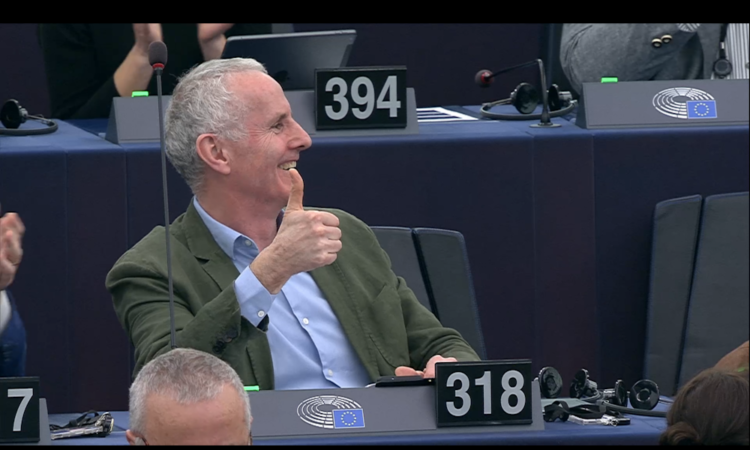
The EPBD includes unprecedented energy efficiency standard on mortgages to unlock the renovation wave
The EPBD includes unprecedented energy efficiency standard on mortgages to unlock the renovation wave.
With 343 votes in favour, 216 against and 78 abstentions the EU Parliament today (14 March) adopted its position on the proposed revision of the Energy Performance of Buildings Directive (EPBD), which includes unprecedented measures to involve banks in the financing of renovation.
This is an impactful victory for our campaign! Thanks to us, the Parliament adopted a more ambitious position than the original proposal by the European Commission.
The main objective of the EPBD is to substantially reduce carbon emissions by increasing the rate of renovations across Europe. To do that, the EPBD introduces mandatory energy performance standards (MEPS), whereby all existing residential buildings would have to reach at least energy performance class E by 2030, and class D by 2033. Estimates are that 70% of the EU’s buildings will need to be renovated by 2050, in order to reduce the EU’s carbon emissions by 36%.
Needless to say, making funding available to everyone will be absolutely critical to making this objective feasible.
As we demanded, the Parliament proposed to reinforce Article 15 of the directive, in particular by emphasising the role of commercial banks in offering renovation loans. MEPs approved a “Mortgage Portfolio Standard” to ensure banks increase their lending towards energy–efficient renovation.
As all renovations cannot be financed by public money, banks must raise their game and offer adequate and affordable loans for families and communities needing to renovate their homes. The creation of binding MPS will force banks to hardwire energy efficiency into their business strategies.
The Parliament also calls on the European Commission to put forward new proposals to increase public funding as part of the next EU budget for 2028-2034.
After today’s vote, Members of Parliament will start negotiating with the Council and the European Commission under the so-called “trialogue” procedure. We stand ready to take the battle to the next level!






